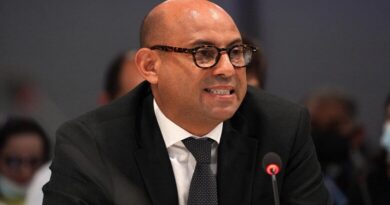Waste-to-energy: Centre showcases hydrogen fuel cell technology
In line with the concept of circular economy which aim to use resources as long as possible, extract the maximum value from them, and regenerate materials at the end, the International Clean Energy Partnership Foundation Climate Technology Centre (ICEPS CTC) Bonn, Germany has showcased hydrogen fuel cell technology.
The technology is an emerging innovation in which biomass waste can be use to generate hydrogen fuel for various uses.
At an experts meeting during the United Nations Bonn Climate Change Conference 2018 held in May, Founder and Chief Executive Officer of (ICEPS CTC), Mr. Heinz J. Sturm, presented the emerging hydrogen fuel cell technology to participants.
Essentially, the technology relies on gasification of biomass such as household waste; sewage sludge; slaughterhouse waste; food recirculation or over-food; nurseries and orchards, farms of all kinds, forestry and livestock farming; waste processing plants and green waste collection points.
In his presentation on “ Industry- Implementation of circular economies and industrial waste re-use and preventions solutions”, Sturm, who is also the author of the Bonn Climate Project posited that: “Due to the drastic climate change & its already perceptible consequences which daily cascade over us somewhere in the world, large-scale climate protection combined with development work is urgently & immediately needed, especially in many poor countries, which are plagued by extreme heat, droughts, water shortages, crop failures, diseases & warfare.”
He stressed that it is a fact that the world needs energy transmission, adding that the first element in the energy transmission is hydrogen, “The universe consists of it, and it is the foundation of all being. Consequently, the transmission to a clean energy can be only hydro/water & hydrogen.”
In an e-mail chat, Sturm told Ecogreennews that waste to energy is absolutely necessary for the development of Nigeria and Africa. He hinted that the organisation is currently working on a project in Africa, specifically in Kumasi, Ghana and DR Congo.
The UN Advisor listed the benefits of the Hydrogen Economy Programme in Kumasi- KSI H2E to include: Contributes to achieving the highest possible level of mitigation ambition; potential solution for Ghana and possibility of extending to other countries and presentation of policy options, technological innovations and best practices on waste-to-energy.
Sturm said the technology could help in fulfilling international commitment in battering developing countries’ quality of life through technology transfer; pilot projects simulation; education and training and efficient allocation of resources.
Besides, that the technology can be used on large scale in several developing countries to achieve sustainable development as a Corporate Social Responsibility (CSR), tax exemption, training of companies’ staff, production cost saving through new innovative energy solutions, helping governments provide better quality of life for their citizens, protecting their domestic environment and efficient allocation of limited domestic energy and resources.




